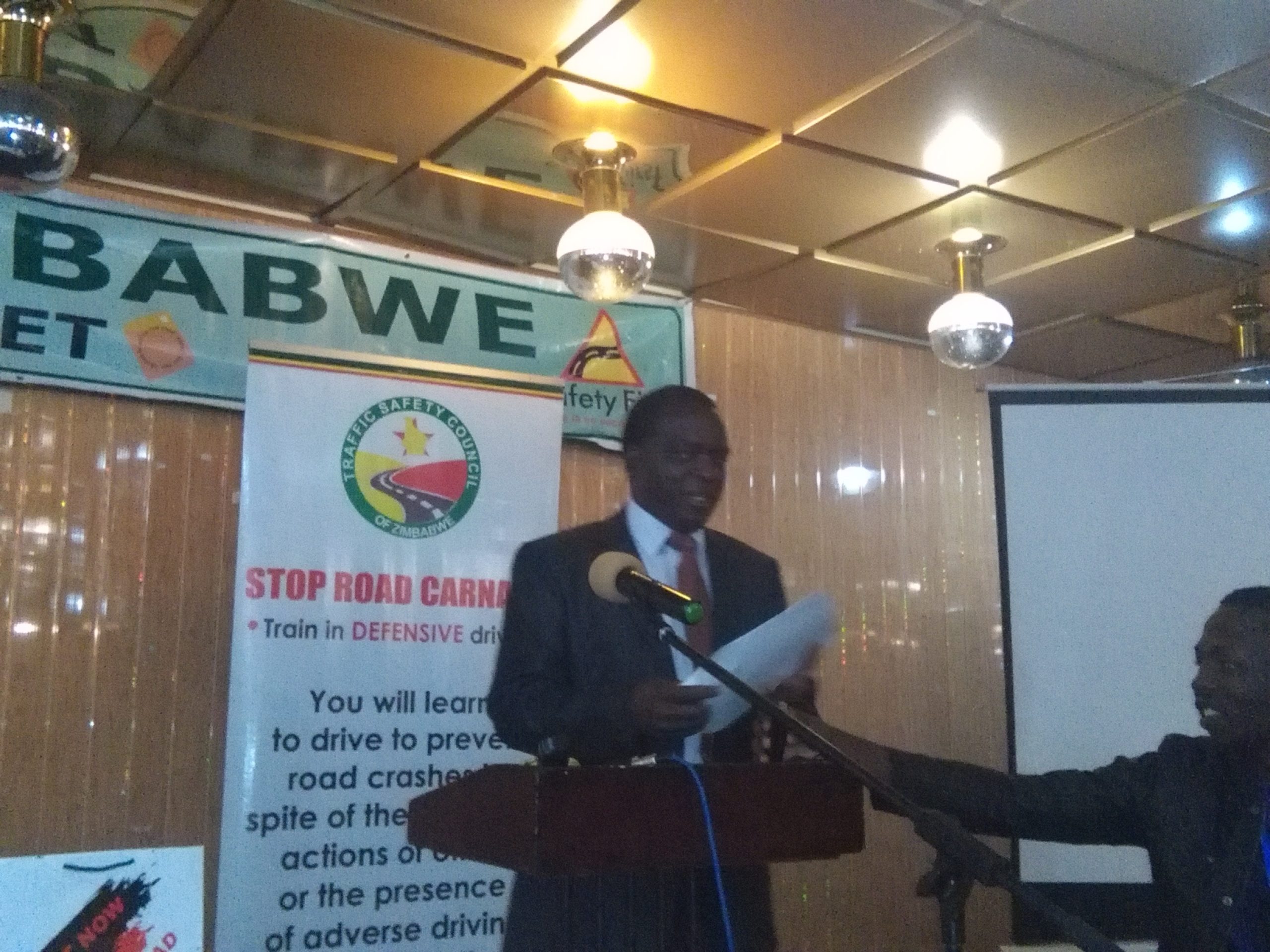By Byron Mutingwende and Patricia Mashiri
The Traffic Safety Council of Zimbabwe (TSCZ) has said everyone has a duty to ensure road safety so as to stop and reduce road traffic deaths by 50% by the year 2020.
Obio Murambiwa Chinyere, the TSCZ Director made the remarks on the occasion of the road safety media half-day workshop held at the Rainbow Towers Hotel in Harare on 5 September 2017.
“We must all work together in order to halt the loss of lives, limps and property due to road traffic crashes. Road safety must be everyone’s responsibility. Please play your part. Let us interface as much as possible in so far as road traffic safety programming is concerned. Certainly, there is information that each of the two sides knows which we must share. Such cordial sharing of information galvanises our collective efforts to eradicate road traffic deaths, injury and property damage. Traffic Safety Council of Zimbabwe is a Learning Organisation. As such, we want to hear your views and comments so that we can achieve best practices in road safety management in Zimbabwe. Please be honest and open with us in expressing your views and comments freely.
“Indeed, it is a truth universally acknowledged that the pen is mightier than the sword. In essence, road safety awareness and education through the mass media can be more effective than road safety penalties. Consistent education is more likely to inculcate a road safety culture than punishment. This workshop is a reflection of our appreciation of the role of the media in taming the traffic jungle in Zimbabwe,” Chinyere said.
Chinyere rallied journalists to focus on in-depth road safety reportage which encompasses pre-crash, the crash and post – crash details of road safety; information about the driver/s and type of other traffic involved (including fitness of both the driver/s and the vehicles); time of the crash; possible causes of the crash; and the road carnage trauma and economic suffering.
The Traffic Safety Council of Zimbabwe (TSCZ) was established on 1 August 2000 by the Traffic Safety Council Act [Chapter 13: 17] (Act No. 20 of 1999). This Act, as read with Statutory Instrument (S.I.) 309 of 1985 (Road Traffic Regulations, 1985) and the Road Traffic Act [Chapter 13: 11] provides the enabling legislative and operative framework for TSCZ.
Its vision is to become a regional leader in continuously reducing deaths, injury and property damage caused by road traffic crashes.
In line with international best practice in human resource management for maximum returns, TSCZ recently had a restructuring of its Human Resources. Quite distinct is the creation of the Office of the Company Secretary and the Information, Communication and Technology Department. In addition, it also rotated its regional managers.
Chinyere urged journalists to undergo training in defensive driving not only for them to improve and perfect their personal driving but to understand the dynamics of the road safety matrix.
“This would certainly go a long way in aiding effective road safety reportage. You then become better placed to adjudicate whether an accident was preventable or not because the course will teach you that ‘a preventable accident is one in which you failed to do everything you reasonably could have done to prevent it’. Such a crop of journalists who would have graduated in defensive driving become our Road Safety Champions (RSC) wherever they go. You are all aware that the news gathering industry involves the inevitable use of road traffic. Each day and time you are using the road, you stand a high chance of losing your life, limb or property due to road traffic collisions. Therefore, no one is immune to road carnage.”
Most road traffic accidents are caused among others, negligence, speeding, drinking and driving, fatigue, misjudgement and stray animals.
Tatenda Chinoda, the Traffic Safety Officer in charge of marketing at TSCZ said most of road traffic accidents are caused by human error.
“According to the ZRP Traffic National Branch, 96% of the 2016 festive season road accidents were attributed to human error. Human error encompasses speeding, inattention and misjudgement, negligent pedestrians and negligent passengers. The remaining 4% was caused by vehicle defects,” Chinoda said.






